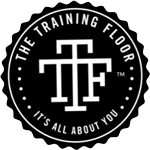2 Great Fat Loss Tips
Never Eat Carbs by Themselves
When attempting to lose bodyfat, insulin control is crucial. The total amount of insulin released by the body isn’t related to just how many carbohydrates you eat but how fast those carbs are digested. Refined carbs digest quickly, raising insulin levels substantially, which is why you should avoid them. But if you do happen to eat, say, a bowl of cold cereal (typically a fast-digesting carb), you can still take measures to ensure those carbs digest more slowly. This will cause less insulin to be released and therefore have less of an impact on your ability to burn fat.
Do This: One way to slow digestion is to eat carbs with protein and small amounts of fat. Never eat carbs alone. Accompany that bowl of cereal, for example, with scrambled egg whites or cottage cheese. Alternatively, you could eat plenty of vegetables, such as broccoli, cauliflower, green beans and green salads, with your meals. These foods actually slow the breakdown and digestion rate of all carbohydrates.
Eat More Meals Per Day
Sure, calories and hormones can determine whether your body deposits food into muscle or as bodyfat, but meal frequency, or how many times you eat each day, affects your overall metabolism. Every time you eat, the body’s calorie-burning engine, also known as metabolism, slightly increases. This is especially true for meals that contain protein. So if you eat six times a day, you’ll experience six metabolic surges a day, rather than just four if you eat only four times a day. And, of course, eating seven or eight times per day would be even better than six. This is one way to lean out without having to drastically reduce calories. Frequent feedings tend to increase the chance that what you eat will make its way into muscle tissue rather than being packed away as bodyfat.
Do This: Eat 6-8 small meals per day, spaced 2-3 hours apart. Don’t go longer than three hours without eating – your body will go into starvation mode, which can cause you to store bodyfat and makes it more likely that you’ll overeat at your next meal. Speaking of overeating, just because you’re consuming more meals doesn’t mean you should be taking in more total calories. Determine your ideal daily caloric intake for fat-burning (see Rule I) and divide that more or less evenly between your 6-8 meals.
For more information on nutrition and workout plans please contact Thetrainingfloor.org
